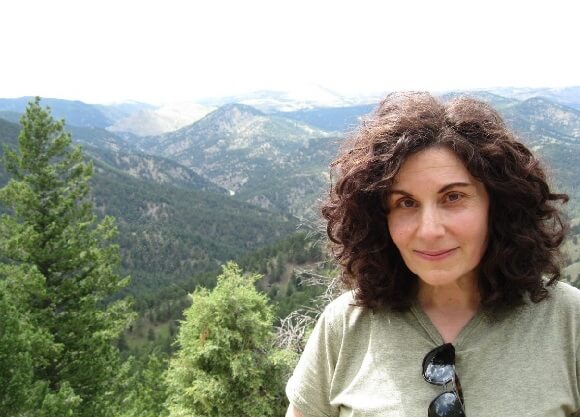
English professor expands understanding of deep learning
November 06, 2017

November 06, 2017

Tursi, an associate professor of English, is spending the semester serving as a Fulbright Canada Research Chair in the Person and Society at Concordia University-Montréal’s Centre for Expanded Poetics. The Fulbright Scholar Program awards competitive, merit-based grants for international educational opportunities for students and faculty.
“I am researching the brain-computer metaphor, an analogy that compares the workings of the brain to a computer and vice versa,” she explained. “Applying literary studies and philosophy to conceptual structures from across the disciplines, my project is exploring this metaphor’s evolution, particularly in relation to Canada’s groundbreaking work in computer deep learning.”
Artificial intelligence refers to the aspiration of having machines exhibit features we associate with human intelligence. Deep learning is an early step toward that goal. Its name originates from its training stage, which proceeds by way of mechanical evolutionary, trial-and-error programming. But according to Tursi, a key difference between human intelligence and deep learning applications is that humans exhibit continuous learning, whereas deep learning is still a long way from demonstrating that ability.
Tursi said she hopes to bring her conclusions back to the classroom, as the question of what constitutes the “human” is at the base of her research on these issues in relation to literature.
“My aim with students is to help them discover and develop the authority of their own thinking and to experience a form of genuine joy in engaging with literature,” she said. “That means unsettling them from their habitual modes of seeing by pushing them to work deeply with their interpretation and expression.”
Tursi said that Concordia University-Montréal has afforded her a wonderfully dynamic environment for fostering her intellectual curiosity – and she looks forward to continuing her project upon her return, especially within the collaborative interdisciplinary culture of Quinnipiac’s Albert Schweitzer Institute.
“I’m very fortunate through the years to be affiliated with the Schweitzer Institute,” Tursi said. “The opportunity for cross-disciplinary conversation with other scholars has been extraordinary, as has been the chance to travel abroad with students.”
Tursi, who has been teaching at the university since 2004, studies the influence of philosophical pragmatism on the representation of consciousness in American literature. Her work has appeared in various journals and book chapters, as well as newspapers.

Quinnipiac Today is your source for what's happening throughout #BobcatNation. Sign up for our weekly email newsletter to be among the first to know about news, events and members of our Bobcat family who are making a positive difference in our world.
Sign Up Now